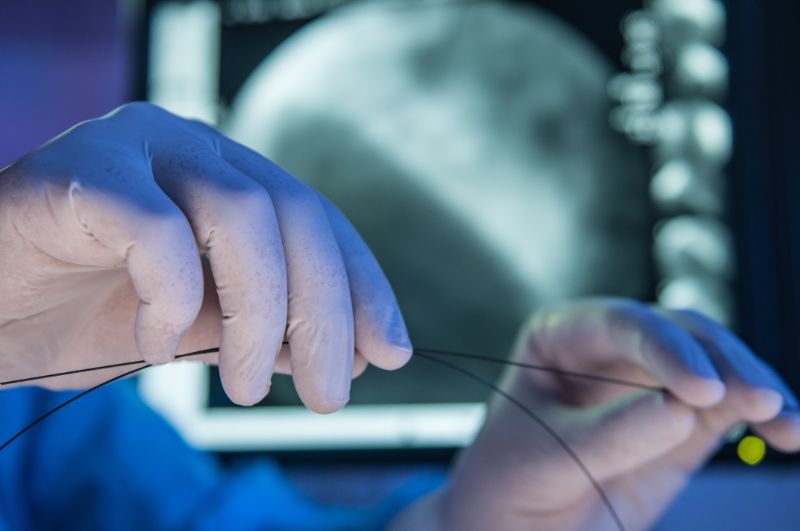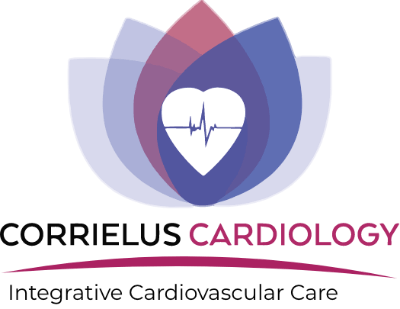Interventional cardiac procedures use specialized techniques to diagnose and treat various heart-related issues without the need for extensive surgery. These procedures often utilize catheters and other small instruments guided by imaging technologies to treat various heart-related issues.
From addressing blockages in the arteries to repairing heart valves and managing other structural heart conditions, we can leverage interventional procedures to deliver effective and efficient patient care.
At Corrielus Cardiology, our commitment to advanced cardiovascular care ensures that you receive the most innovative and personalized treatments available in the field of interventional cardiology.
Interventional cardiology is a specialized field within cardiology that focuses on minimally invasive procedures to diagnose and treat various cardiovascular conditions. Unlike traditional open-heart surgery, interventional cardiology utilizes catheters and other small instruments to access and treat the heart and blood vessels.
These minimally invasive interventions are designed to provide precise and targeted solutions, reducing the need for traditional open-heart surgery. Interventional procedures may use catheters, balloons, stents, and other advanced techniques to restore blood flow, repair damaged vessels, and improve overall heart function.
Interventional procedures can offer advanced treatment options for cardiovascular conditions, providing effective alternatives to traditional surgical approaches.
Coronary Artery Disease (CAD): CAD results from the accumulation of plaque within the coronary arteries, restricting blood flow to the heart muscle. Interventional approaches like coronary angioplasty and stenting are common procedures to open narrowed or blocked coronary arteries, restoring blood flow to the heart.
Peripheral Artery Disease (PAD): PAD involves the narrowing of arteries in the peripheral regions, often affecting the legs. Interventional approaches like peripheral angioplasty and stenting can improve blood circulation in the affected limbs, alleviating symptoms like leg pain and promoting mobility.
Aortic Aneurysm: A weakened area in the aorta can lead to an abnormal bulge known as an aneurysm. Endovascular stent grafting is an interventional procedure that can reinforce the weakened aortic wall, reducing the risk of rupture.
Aortic Valve Stenosis: Aortic Valve Stenosis is caused when the aortic valve narrows, restricting blood flow from the heart to the rest of the body. Transcatheter Aortic Valve Replacement (TAVR) is a minimally invasive procedure used to replace a diseased aortic valve with a new one, enhancing blood flow.
Thrombosis: Thrombosis causes the formation of blood clots within blood vessels. Catheter-based interventional techniques can remove or break down blood clots, restoring normal blood flow.
Interventional cardiac procedures are minimally invasive, providing a safer alternative to traditional open-heart surgery, with significantly reduced recovery time.
In most cases, the procedure offers immediate relief by swiftly restoring blood flow to the heart muscle and alleviating symptoms such as chest pain and shortness of breath.
Interventional procedures are just as effective in the long term. The techniques used typically contribute to the stability of the treated areas, potentially minimizing the risk of future cardiovascular events.
Coronary artery stenting is a commonly used interventional cardiology procedure to treat narrowed or blocked coronary arteries. In CAD, atherosclerosis can lead to the formation of plaques, restricting blood flow to the heart muscle.
A comprehensive diagnostic process, including angiography, typically precedes coronary artery stenting. During an angiography, your cardiologist identifies the precise location and extent of blockages within the coronary arteries.
Before your procedure, you will be given detailed instructions on necessary preparations, including fasting and potential medication adjustments. A mild sedative is often administered to ensure comfort during the intervention.
The catheter is carefully guided to the site of the blockage. Once in position, the balloon is inflated, expanding the stent and pushing it against the arterial walls. The stent is a mesh-like metallic tube that remains in the treated area when the balloon is deflated and removed, preventing the artery from collapsing and providing structural support.
The mesh structure of the stent allows for the unimpeded flow of blood, contributing to the overall improvement of coronary circulation.
At Corrielus Cardiology, our board-certified cardiologist, Dr. Sanul Corrielus, employs state-of-the-art techniques and a patient-centric approach to treating cardiovascular concerns.
Our integrated approach to cardiovascular health prioritizes your overall well-being and quality of life.
To schedule your cardiology consultation, call Corrielus Cardiology at 215-383-5900 or book an appointment online.



